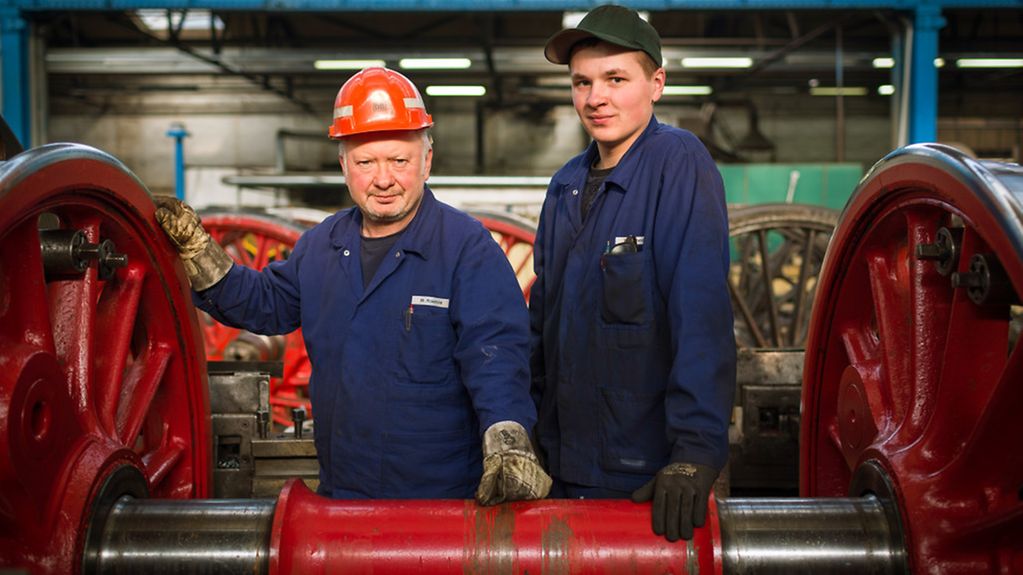EU Social Justice Index
Social justice has been improving in Germany: it is one of the few EU states to see a positive trend since 2008 in social justice within society. This is thanks largely to positive developments on the labour market.
2 min reading time

Stable labour market ensures social justice
Photo: Thomas Trutschel/photothek.net
A new study ranks Germany seventh of the 28 EU member states. It is one of the few countries that have seen social justice develop positively since the start of the economic crisis.
Bertelsmann Stiftung study published
These are the conclusions of a study of social justice in the EU now published by the German foundation Bertelsmann Stiftung, along with ranking list of social justice in the EU. This index takes 35 criteria to measure the social inclusion opportunities in all 28 EU member states. It looks at poverty, education, the labour market, health, inter-generational justice, social cohesion and non-discrimination.
Every year from now on the Bertelsmann Stiftung is to examine trends in social justice within the individual member states of the European Union. The aim is to focus the attention of the EU on matters relating to social justice. In future the index is to be supplemented by an EU reform barometer, which will reflect the reform efforts of member states to improve social inclusion. The index and the barometer will together form the "Social Inclusion Monitor Europe" (SIM), which will complement the "Social Justice Index" of OECD (Organization for Economic Co-operation and Development) member states.
Greater social justice
Germany has managed what scarcely any other EU state has – it has actually managed to close the social justice gap since 2008.
This can be attributed largely to the positive situation on Germany’s labour market: moves to keep older members of the workforce in work and to tackle long-term unemployment have led to a robust positive development on the labour market. The stable labour market has in turn fostered social justice in Germany.
Over and above this, the introduction of an across-the-board minimum wage and the opportunities offered by the dual vocational training system, in which trainees enjoy the benefits of practical training in industry parallel to theoretical school-based training, have also helped lessen social imbalances. Some progress was also attested in the fields of education, integration and health, however.
Further reducing social injustice
Overall Europe’s states have made some progress in stabilising their economies, but the level of social justice has fallen for the most part in recent years.
The people in the crisis-affected states of southern Europe suffer disproportionately frequently from social injustice as compared to their northern neighbours. High youth unemployment has pushed up the risk of poverty. The Scandinavian states head the ranking list.
Closing this gap will be a major new challenge for the EU. The Bertelsmann Stiftung study sees the solution in achieving the right balance between fiscal consolidation and investing in the future.